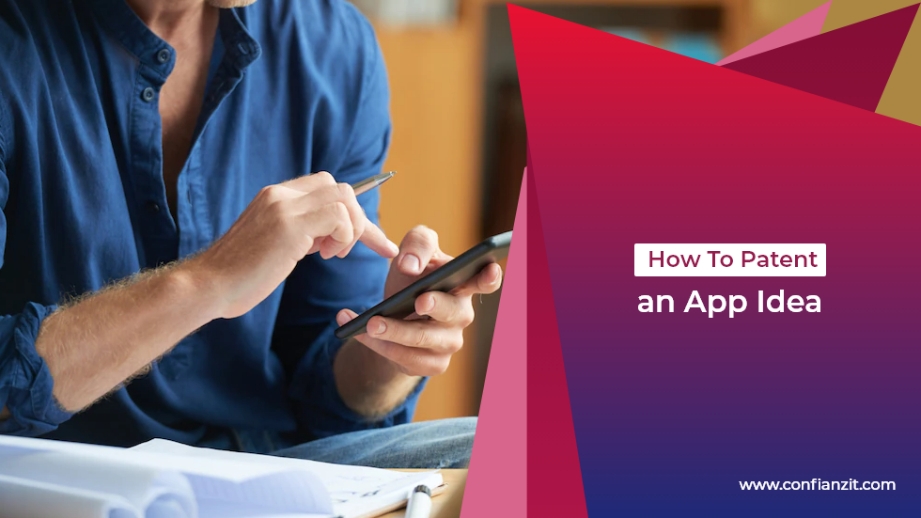Your original app idea is only as unique as it is legally protected.
Don’t just take it from us. Type in any app on the app store and see the long list of related apps beneath it, many of which are only minor variations from the original concept.
Big companies may be able to win against these copycat competitors with larger budgets and development teams. But what if you’re a smaller company with a fresh idea as your primary weapon in the competitive environment that is the mobile app market?
A patent can be your best defense against idea scavengers and ensure that your concept remains unique to your brand.
In this article, you’ll find out what a patent is, why you should get one, and how to obtain it.
What Is a Patent (And What Kind Do You Need)?
A patent is a legal document and form of intellectual property that gives the owner of that idea the sole right to make, use, and sell it for 20 years from the filing date. The patent protection will only extend for an additional 20 years after the original term expires if there are continuations or extensions.
A patent gives the inventor sole ownership and rights for some time. It is what enables inventors to profit from their inventions.
A patent protects the “inventor” and their idea of a new invention. The patent grants the inventor exclusive rights to their invention for a certain period. The United States Patent and Trademark Office (USPTO) is in charge of granting patents to inventors.
The USPTO has three types of patents:
- Utility. A utility patent protects the way an article is used or its function.
- Design. A design patent protects how an article looks instead of how it functions.
- Plant. A plant patent protects any new variety of plant, including seeds that produce plants with novel traits or characteristics.
As an app creator, you will most likely not need the plant patent. But the choice between the other two will depend on exactly what aspect of your app you want to patent.
Utility patents are for functional items like apps or software, while design patents are for the ornamental appearance of an object—such as the look and feel of an app.
Why You Should Patent Your App Idea
When planning your app, getting a patent probably isn’t at the top of your to-do list. It may seem like overkill, an added expense, or just one more thing to do.
But patents exist for a reason, and it’s much better to protect your intellectual property up front instead of waiting until someone is already profiting off your hard work.
There are quite a few benefits of having a patent on a mobile app. The main pro is that it prevents others from capitalizing on your idea and indicates to investors that you have some level of ownership over the project.
These are some other benefits of having a patent:
- Protects your intellectual property from being stolen by competitors
- Helps establish your company as an innovator
- Provides evidence of ownership of intellectual property rights
- Can help with product development in the future
- Provides legal protection
- Helps you get financing
- Gives you an edge over competitors
Some caveats
While there are numerous pros to having a patent, you should go into the process with your eyes open.
Patenting your app idea can be costly and time-consuming, and you aren’t guaranteed success. So make sure to consider whether or not a patent is ultimately worth it.
If your app largely relies on the execution of your concept, or you’re confident it would be difficult to mimic, you may be able to get away with not filing for a patent. But if not, continue to the next section to learn how to patent your idea.
How To Patent Your App Idea
The first step is researching and discovering if your idea has already been patented. If so, you should rework your concept and return to the drawing board.
Patentability relies on five core requirements:
- Patentable subject matter
- Utility
- Novelty
- Non-obviousness
- Enablement
You need to file a patent application with the USPTO to obtain a patent. A provisional application can be filed as early as one year before you intend to file your final application.
It’s a good idea at this point to find a patent attorney. They will help you research and file the USPTO’s patent application.
A patent application should be concise and precise, with the most relevant information in the most straightforward way possible. The following are some tips for writing a good patent application:
- Include drawings where necessary
- Use diagrams where appropriate
- Include an abstract
- Be specific about what you are trying to protect
- Explain why your invention is new, helpful, and not obvious
After filing your application with the USPTO, you will be required to pay an issue fee. In addition, within 12 months of filing your application, you will need to pay an examination fee which allows the USPTO examiner to review your invention.
How long does it take to get a patent?
Obtaining a patent can take anywhere from one year to five years or more, depending on how complicated your app idea is.
There are a few ways to speed up the process, but remember that these generally include some hefty fees. They include:
- USPTO’s Prioritized Patent Examination Program
- Petition To Make Special
- Accelerated Examination
- Patent Prosecution Highway
- Full First Action Interview Pilot Program
They each have different stipulations and cost varying amounts. Look through them to see if the price and qualifications are a good fit.
Conclusion
Patents ensure that inventors get their dues, which also applies to mobile apps. While the process can be time-consuming and costly, a patent can give you the legitimacy and space you need to stand out from the competition.
If you’re looking to patent your mobile app, Confianz can help! We can help you navigate the complex process to patenting success. As a mobile app development agency, we provide unmatched full-stack mobile application development services globally to a wide range of business verticals & help them enhance their market reach, growth and ROI. We develop custom mobile app for iOS and Android. Call us today to get started!







